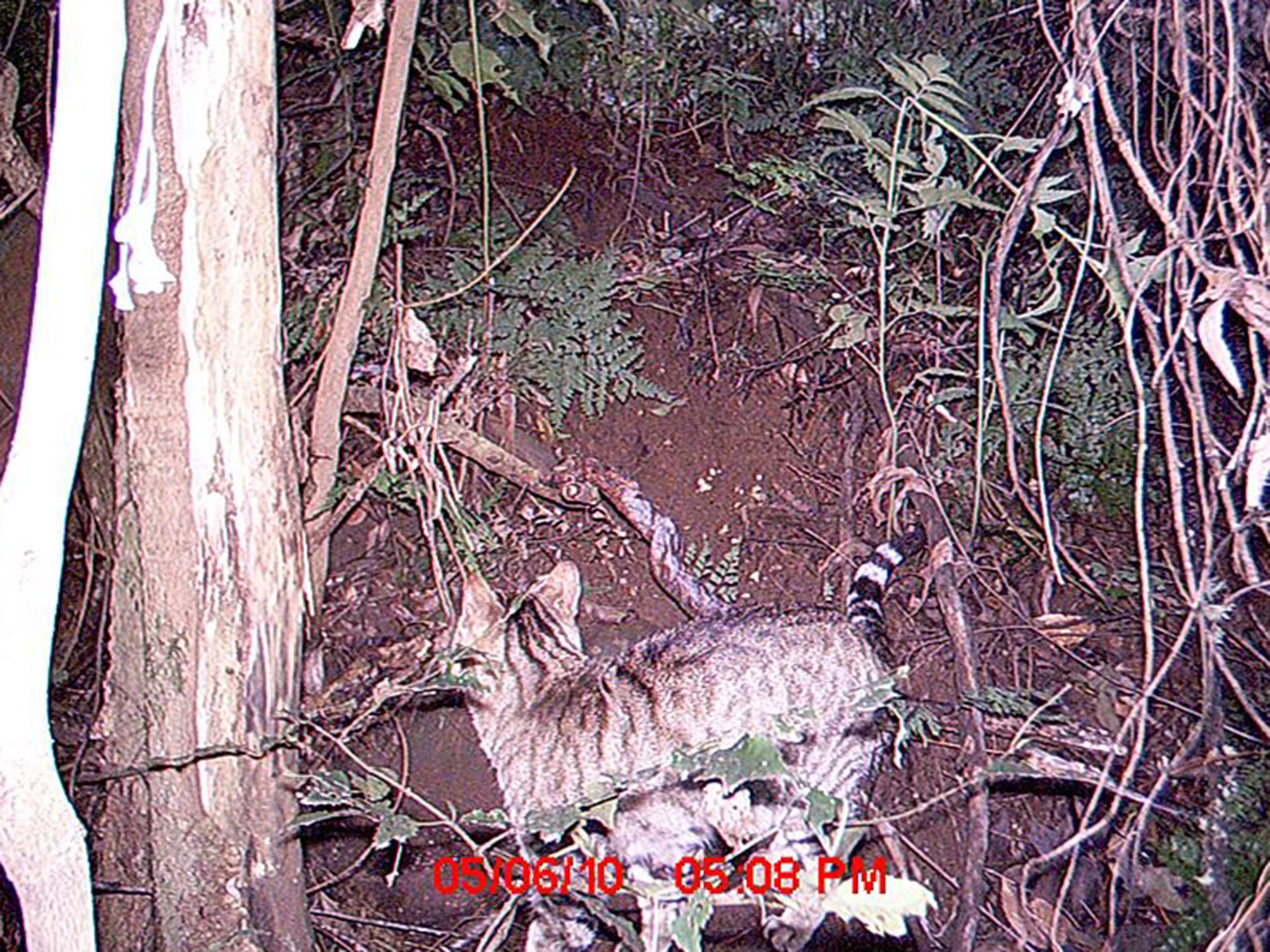Australia plans to kill millions of feral cats by airdropping sausages laced with poison
The government wants to kill 2 million cats by 2020

Your support helps us to tell the story
From reproductive rights to climate change to Big Tech, The Independent is on the ground when the story is developing. Whether it's investigating the financials of Elon Musk's pro-Trump PAC or producing our latest documentary, 'The A Word', which shines a light on the American women fighting for reproductive rights, we know how important it is to parse out the facts from the messaging.
At such a critical moment in US history, we need reporters on the ground. Your donation allows us to keep sending journalists to speak to both sides of the story.
The Independent is trusted by Americans across the entire political spectrum. And unlike many other quality news outlets, we choose not to lock Americans out of our reporting and analysis with paywalls. We believe quality journalism should be available to everyone, paid for by those who can afford it.
Your support makes all the difference.The Australian government is airdropping poisonous sausages across thousands of hectares of land in an effort to kill millions of feral cats, according to reports.
It is just one of the tactics used by the government as part its plan to kill two million feral cats by 2020 in order to protect native species.
Cats are also trapped and shot by government officials.
The cats die within 15 minutes after eating the sausages made with kangaroo meat, chicken fat, herbs, spices and the poison, 1080, the New York Times reported.
Planes distributing the poisoned treats, which are produced at a factory close to Perth, drop 50 sausages every kilometre in areas where the cats roam free.
Dr Dave Algar, who helped develop the poison recipe, said he used his cats to test the taste of the sausages before adding the poison to check the flavour.
"They've got to taste good,” he told the paper. “They are the cat's last meal."

Since they were first introduced by European settlers, feral cats have helped drive an estimated 20 mammal species to extinction, Gregory Andrews, the national commissioner of threatened species told the Sydney Morning Herald.
According to Mr Andrews, that makes feral cats the “single biggest threat” to Australia's native species.
"We have got to make choices to save animals that we love, and who define us as a nation like the bilby, the warru (Black-footed rock-wallaby) and the night parrot," he said.
It is estimated that cats kill 377 million birds and 649 million reptiles every year in Australia, according to a 2017 study published in the journal Biological Conservation.
When the Australian government first announced its cat culling target in 2015, it drew international criticism.
More than 160,000 people signed half a dozen online petitions calling on Australia to drop the plan. Brigette Bardot wrote a letter calling on the government to stop “animal genocide”, while Morissey responded by saying "idiots rule the earth".
The cull has also come under fire from some conservationists who argue that the government are focusing too heavily on cats, rather than addressing other factors that reduce biodiversity such as urban expansion, logging and mining.
Tim Doherty, a conservation ecologist from Deakin University in Australia, told CNN: "There's a possibility there that cats are being used as a distraction to some extent," he said. "We also need to have a more holistic approach and address all threats to biodiversity."
Despite the more creative methods employed in the government’s cat cull, individual shooters are responsible for the 83 per cent of the cats killed so far, according to The Royal Melbourne Institute.
And Australia is not the only country to focus on reducing cat populations, with calls in New Zealand to put a stop to domestic cats altogether.
The country has announced a goal of becoming completely predator free by 2050. And last year, Omaui, a small coastal town in the South Island, considered banning people from owning cats – although it has since backtracked on this plan.
Join our commenting forum
Join thought-provoking conversations, follow other Independent readers and see their replies
0Comments